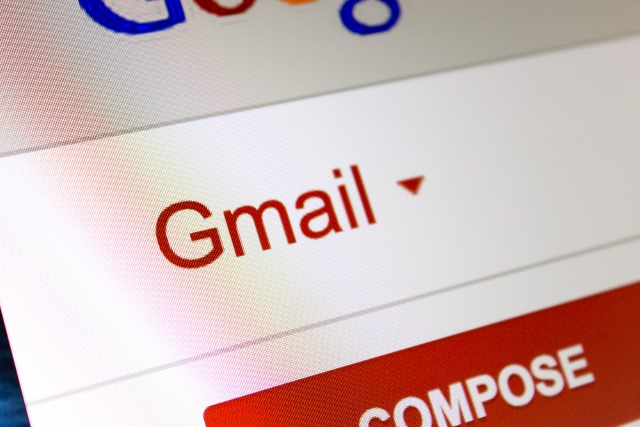
Companies need to work together to combat malvertising
Advertising agencies, search engines and cybersecurity specialists should work collectively to tackle the security threat from rising malvertising.
According to Ben Williams, head of operations and communications at Adblock Plus unless this happens more users will be exposed to potential security compromises such as malware and phishing, and this will drive further adoption of adblockers as a solution to these threats.

Telco data is an untapped source of customer information
Brands often turn to sources like Google and Facebook to find information about consumers, but a new report suggests that telecom carriers could be a valuable source of customer data.
The study of over 300 brands in the US, UK and France by Ovum for mobile technology company Synchronoss Technologies finds that 67 percent of brands consider telecoms operators to be a better original source of data insights than Google, Apple and Samsung.

Ad blocker Shine does a complete u-turn... and rebrands as ad company Rainbow
In a perfect example of poacher-turned-gamekeeper, Israeli company Shine -- known for producing ad blocking software -- has rebranded as Rainbow and will instead offer an advertising service. Rainbow will work primarily with telecoms companies, and will have a strong focus on targeted advertising.
The company says that it wants to provide "a better ad experience for consumers", having apparently decided that blocking ads was not working for everyone. Rainbow aims to win round consumers by providing an opt-in service that means people will see only advertisements that comply with industry standards and observe privacy rules.

Paid-for Google Site Search to be phased out and replaced by free, ad-supported version
Emails to customers reveal that Google plans to kill off Google Site Search this spring. While customers who have paid for the service will continue to have access to it, no new licenses or renewals will be sold after 1 April, 2017.
As reported by Fortune, customers will be migrated to Google's ad-supported Custom Search Engine once their license or search limit expire. The move illustrates Google's on-going and growing reliance on advertising income, and it's something that is unlikely to be well-received by web users who are already sick of being inundated with ads.

Google to drop 30-second unskippable ads from YouTube
Ads -- be they on TV, on the web or in apps -- can be deeply annoying, hence the prevalence of ad-blocking software. But there are some ads that you can't always avoid, such as those tacked onto the beginning of YouTube videos; not all ad-blocking software is made equal, after all.
If this is a bugbear of yours, there's good news on the horizon. While YouTube is not ditching ads altogether, the 30-second monstrosities which cannot be skipped are being dropped.

Mobile ad-blocking will get out of control in 2017
It wasn’t just the news of Trump and Brexit that dominated headlines in 2016 -- adblocking also remained high on the news agenda after experiencing a roller-coaster year. Murmurs among the industry claimed that 2016 would represent a possible adblocking Armageddon, while the IAB’s CEO and president, Randall Rothenberg, spewed the words of Adblock Plus (ABP) as "extortionists, internet killers, an unethical, immoral, mendacious coven of techie wannabes."
But that wasn’t all. In August, an epic back-and-forth battle between ABP and Facebook kicked-off as we successfully circumvented each new update made by the social media giant to uphold the users’ rights of blocking ads on the desktop version of the site. And if that wasn’t enough, in late November we once again proved that adblocking is 100 percent legal after a sixth court win, this time over German publisher Spiegel Online.

Why advertisers need to wake up to mobile games
Mobile devices are increasingly used for many aspects of our lives and that includes playing games. But what does this mean for enterprises looking to promote their brands?
New research from mobile engagement platform Tapjoy suggests that consumers are twice as likely to say they feel relaxed when playing mobile games than they are when using social apps and that means more potential for advertisers to get their message across.

Microsoft starts advertising its Chrome add-ons in Windows 10
If you’re a Windows 10 user, you’ll be no stranger to Microsoft’s adverts which appear all throughout the operating system, including on the Start menu, and the Lock screen. As I wrote a week ago, Microsoft is planning on introducing even more adverts in the Creators Update.
The latest ad to appear is for one of Microsoft’s Chrome extensions, and it arrives -- appropriately enough -- above the Chrome icon on the taskbar. The browser doesn’t need to be open at the time.

Android overtakes iOS in mobile ad revenue
Analysis of data from billions of mobile ad impressions served during the third quarter of 2016 shows that for the first time Android has passed iOS in terms of revenue generated.
The report from real-time advertising platform Smaato shows that based on eCPM (effective cost per thousand impressions) in the third quarter of 2016, Android accounts for 55 percent of global mobile ad revenue generated by publishers compared to 41 percent for iOS, the share of which is eroding.

EU wants to increase privacy in WhatsApp, Gmail and iMessage by preventing unwanted tracking
Facebook, Apple and Google face a drop in ad revenue if EU proposals to apply the same rules to online messaging services that currently apply to telecoms companies go through. In a nutshell, the proposals suggest that the likes of WhatsApp, Gmail and iMessage should ask for explicit user permission to allow tracking with a view to delivering targeted ads.
Google and Microsoft have already faced criticism for scanning emails and using the contents to tailor advertising to the recipient. The EU wants online message services to be subject to the ePrivacy Directive to help improve confidentiality and security.

Microsoft sneaks yet more ads into Windows 10 Creators Update
Microsoft has been sneaking adverts into almost every spare space in Windows 10.
These ads appear in the Start menu, on the Lock screen and even in the Windows Ink Workspace. Plus, the software giant has been showing popups promoting Microsoft Edge and running app promotions on the new tab page. But, because there’s still real estate left to throw some more ads in, Microsoft plans to introduce even more promotions in the forthcoming Creators Update.

Google agrees to change its email scanning systems to avoid a privacy lawsuit
The fact that Google scans the contents of emails sent and received through Gmail has been known for some time now. It's just one of the ways in which the company gathers information about users to help deliver targeted advertising. Faced with a lawsuit over the privacy implications of this technique, Google has agreed to change its scanning systems.
Before you check to see whether hell has indeed frozen over, this is hardly a dramatic change of heart for Google. The change is only very slight, and in practice it will make little -- if any difference -- to end users.

Junk food ads targeting children to be banned online
Advertisements for junk food that are aimed at children are to be banned from non-broadcast media, including online. The Committee on Advertising Practice (CAP) announced the measures, which will affect advertisers in the UK, as the government tries to tackle childhood obesity.
The ban means that foods high in fat, salt and sugar cannot be advertised on social media, YouTube channels and gaming websites in ways that will specifically appeal to children.

Facebook is monitoring Roku and Apple TV streams to deliver targeted advertising
Internet users are accustomed to the idea of targeted advertising. Both Google and Facebook take into account the things you look for online, the things you look at, the people you are connected to, and so on, and use this information to pelt you with ads they think you will respond to.
Having been forced to stop using data gathered from WhatsApp to deliver targeted ads to social network users, you might think that Facebook would consider toning down its ad personalization. But you would be wrong. For the last few weeks, Facebook has been testing the delivery of targeted ads to Roku and Apple TV based on what people are watching.

Right-wing Breitbart blocked by AppNexus ad exchange for hate speech
Right-wing website Breitbart -- the darling of the so-called alt-right movement -- has been blocked by a leading ad exchange. The site, home to Milo Yiannopoulos (also known as @Nero and banned from Twitter) will no longer be permitted to sell ad space via AppNexus.
The move comes after an audit by AppNexus found that Breitbart was in violation of its policies on hate speech and incitement to violence.
